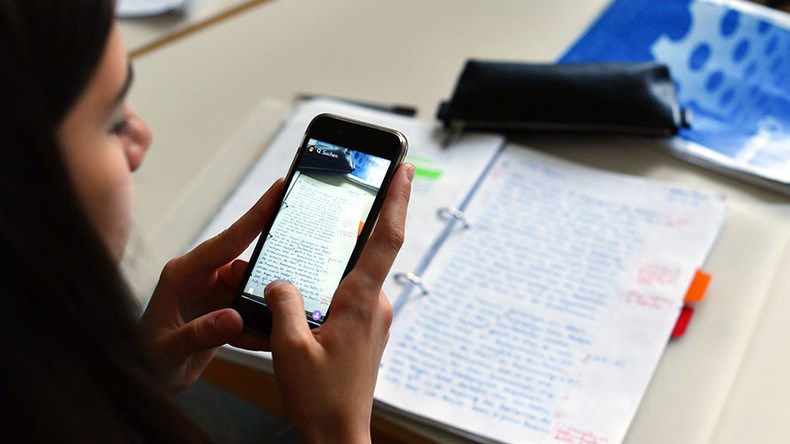Public debates about smartphones in the classroom are flaring up across the country, but the voices of young people are missing, those that researchers say are most at risk. We decided to go to the source and have two young smartphone users tell us how they feel.
Katie Grettum
Camrose, Alberta, 19 years of age
I was in Grade 7 when I got my first phone. It was one that you had to flip and slide upward.
I used that flip phone solely for contacting my parents. Now, phones are used for almost anything, and just about anywhere.
That is great, except when that anywhere is a school classroom.
Self-control has shown to be the strongest predictor of future success, even more critical than socioeconomic status or IQ. But when it comes to tech, self-control is extremely difficult. Most teens check their phones 86 times a day. We all know how easy it is to get distracted by your phone.
The classroom is one place you don’t want to get distracted. According to Abacus Data’s recent youth survey, most young Canadians agree that it is harder to get ahead today than in the past. In this competitive economy, success in the classroom is more important than ever.
There is no reason for elementary school students to have phones in their classrooms. This seems like common sense, but there is also research to prove it. Studies show that screen time affects brain function development in early ages.
Determining phone use in middle school and high school is a little trickier. When studying for Alberta’s Provincial Achievement Tests, smartphones were helpful in-class devices, especially when accessing online resources such as Exam Bank.
Unfortunately, the PATs were a one-off. From personal experience, phones are most often not being used for educational purposes in class. Students may say they are using their phones appropriately, but they’re mostly just flipping between “research” and social media.
Through working with youth, I’ve seen noticeable differences between generations, especially when it comes to technology. Kids younger than me seem to use their devices whenever they want, with no consequences. I think this makes the issue of phone use in school that much harder to tackle.
Phones are powerful tools, but in the classroom I think they do more harm than good.
Jahmaal Branker
Kingston, Ontario, 21 years of age
To quote the song by rapper Kevin Gates: “I got two phones.”
One is personal; the other is for work.
Now I’m sure I don’t use my phones in the same way a multimillionaire rapper might. But for Kevin and I, and the billion other phone users in the world, phones are essential to our everyday lives.
I got my first phone in Grade 12. Because of my busy schedule senior year, I was always out at my local Boys and Girls Club, my mom needed a way to contact me. And because I now had a quick way to communicate with others, I was also able to pursue many extra-curricular activities. But the icing on the cake? The phone helped me in the classroom.
Typically, it’s assumed that phone is synonymous with distraction. And that’s fair. I can recall many instances in high school where I would be watching videos on my phone instead of paying attention.
But for the most part, when used appropriately and responsibly, my phone positively contributed to my learning in the classroom.
It’s all about efficiency.
Instead of going to the library, I could do research in an instant. Instead of handwriting my notes, I took photos of the blackboard and instructor presentations. I was able to get work done faster and better.
We are just scratching the surface of mobile and e-learning, but already we know that supporting the development of digital literacy skills motivates and engages students.
Instead of banning tech, educators could try teaching students how to use phones to boost their learning — like this teacher.
My phones have helped me navigate the modern world, find success in the classroom, and connect me to the larger community.
Submitted by the Boys and Girls Clubs of Canada. See how the organization tackled this issue at unplugtoconnect.ca



